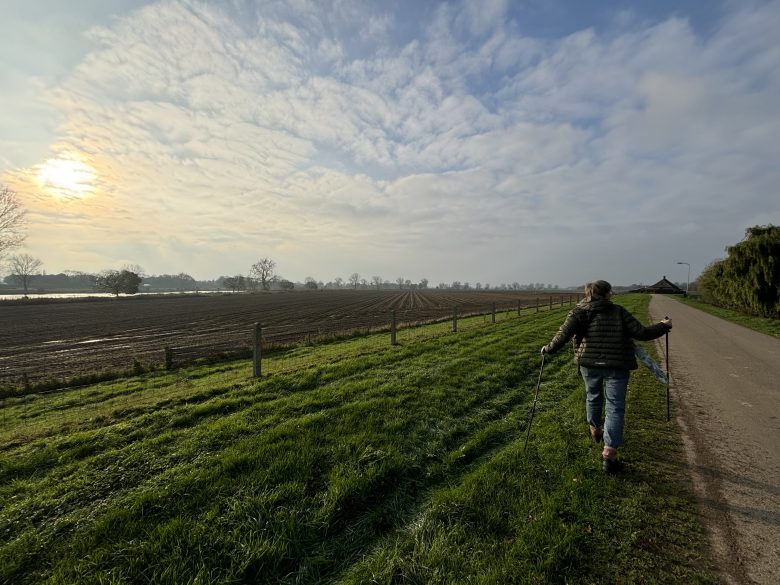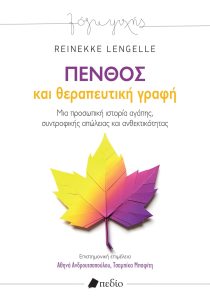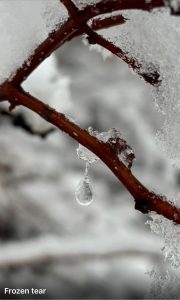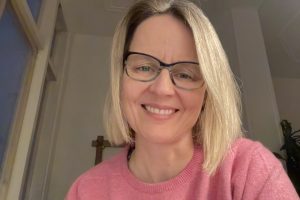A Special Issue of The Journal of Constructivist Psychology
The Vulnerable Researcher:
Being, Doing, and Becoming Through Your Practice
Guest Editors
Bob Fecho and Reinekke Lengelle
New PhD students frequently enter their studies amazed that they can conduct qualitative research focused on the stories and lived experiences of others. That sense of wonder often heightens when they are encouraged by mentors to position themselves in the research. These influences often lead to position statements in methods sections that suggest various subjectivities such as sexual orientation, race and ethnicity, and other sociocultural factors that might play into the research. Such sharing of personal details and stances interjects a more human and humane element into studies and comes with a modicum of openness that, to some, might feel risky.
However, what we are interested in this issue is what does it mean to go beyond the useful but simplistic dynamics of a position statement and, instead, lay open one’s life experiences and practices to become truly vulnerable in our research. It’s one thing for a researcher to identify as queer, but entirely more complex to investigate one’s queerness as it dialogues with one’s positions as therapist, as sexual partner, and as son of conservative parents. Stating that one is a white female teacher in a school primarily populated by Black students is not equivalent to describing the ways one’s engagement with institutionalized racism is influenced by narratives one has grown up with and is trying to make conscious in order to enrich and open up one’s self, research, and teaching practice.
In this issue, we are requesting proposals for articles that explore, unpack, advocate for, question, and/or critique research that seeks to inquire into the vulnerabilities of the researcher, that positions research as a transaction in which one shapes, but is also shaped by the research. The theoretical and methodological trail—one that has argued for an expansion of what counts as research—has been blazed by eminent scholars such as Norman Denzin, Carolyn Ellis, Art Bochner, Laurel Richardson, Fred Erickson, Dixie Goswami, Susan Lytle and Marilyn Cochran-Smith.
Possible approaches might be . . .
- Autoethnographic studies
- Practitioner research
- Self studies
- Critical essays
- Survey of the relevant literature
What links all the articles is a willingness by the author to engage oneself in the complexities of choosing vulnerability as a stance from and through which to conduct research. For example, if you share a study of your coping with loneliness, some aspect of your discussion should be a meta dialogue about conducting such a study.
Possible questions to consider:
- What is gained or lost when the researcher takes a vulnerable stance?
- What are the possibilities and cautions of using story with which to represent one’s life experiences?
- What tensions exist between issues of rigor, validity, and objectivity and the need for the vulnerable researcher to tell their story using narrative and literary devices (e.g., metaphor, analogy, poetry)?
- What makes for richly deep and complex storytelling as well as richly deep and complex analysis?
Proposal Format
We are anticipating articles that will be 8000-10,000 words in length inclusive of references, with the possibility of 6-10 articles being included in the published issue. The editors are looking to have the completed articles ready for the Spring 2026 issue.
Proposal submission: February 28, 2025
Word count of proposal: 500–600 words max.
Include the following:
- your narrative arc
- your key arguments/themes
- possible insights/conclusions
- at least five resources you will use to inform your thinking. Given that the opening article will position the issue within dialogical self theory, we would prefer to see DST as one of those references, but will not require such if the article is well-grounded through other theoretical stances.
In short, help us, and thus any future reader, become interested in reading more about your work.
Please note: All articles will go through what JCP calls Closed Circuit Peer Review. You would be expected to review the work of two other contributors to the issue as part of the process of getting the work up to publishing quality. The idea behind this is to keep the work on schedule and to create a more cohesive issue.
We look forward to receiving your chapter proposal and will respond in a timely fashion (likely within eight weeks of proposal submission). Please note that acceptance of the proposal does not guarantee acceptance for publication, although we will certainly work with all authors to support that positive end.
- Upon proposal chapter acceptance, the full chapter is due by July 1, 2025.
- Peer-review process July–September 2025, with potential revisions.
- Final chapters due by January 5, 2026.
Contact email: raf2187@tc.columbia.edu
Please write the proposal and subsequent article using APA 7th ed. format. There is a possibility that a book could come from this work.
Guest Editor Biographies
Bob Fecho is professor emeritus of English Education at Teachers College, Columbia University where his work continues to focus on issues of language, identity, sociocultural perspectives, and dialogical pedagogy as they relate to adolescent literacy among marginalized populations. His most recent book, co-authored with Dawan Coombs and Trevor Stewart, is Two Years in the Lives of Two English Teachers: To Be, to Do, to Become. Other single or co-authored books include Novice Teachers Embracing Wobble in Standardized Schools: Using Dialogue and Inquiry for Self-reflection and Growth; Dialoguing across Cultures, Identities, and Learning: Crosscurrents and Complexities in Literacy Classrooms; Teaching for the Students: Habits of Heart, Mind, and Practice in the Engaged Classroom; and “Is this English?” Race, Language, and Culture in the Classroom, the last of which received the James N. Britton Award (CEE/NCTE) recognizing exemplary studies published by English/language arts teachers. His work has also received the Richard Meade Award for Education Research (CEE/ELATE) as well as the Alan C. Purves Award (NCTE), which honors articles published in Research in the Teaching of English most likely to influence classroom practice.
Reinekke Lengelle is associate professor of Interdisciplinary Studies at Athabasca University, Canada and a researcher at The Hague University of Applied Sciences, The Netherlands. Her book Writing the Self in Bereavement: A Story of Love, Spousal Loss, and Resilience was published by Routledge in 2021 and won the Qualitative Inquiry Book Award in 2022 and the Way of Life: Best Book Award for Ethnography in 2021. Her Dutch book Jezelf Schrijven (2018) describes how poetry can be a creative, expressive, and reflective way to develop one’s “warm inner compass.” Reinekke has been teaching for 26 years and created the graduate courses: MAIS 616: Writing the Self and MAIS 621: Narrative Possibilities, and redeveloped MAIS 662: Mourning and Trauma. She is the author of numerous book chapters and articles on writing for wellbeing as it pertains to personal development, responding to loss, and career learning and was a symposium co-editor with the British Journal of Guidance and Counselling for five years. Her latest co-edited books with Routledge are Writing for Wellbeing: Research, Theory, and Practice (2023) and Art That Tells the Truth: Creative Methods in Guidance and Counselling (2024). Her writing journey began in childhood, and her first genres were poetry and playwriting. www.writingtheself.ca



